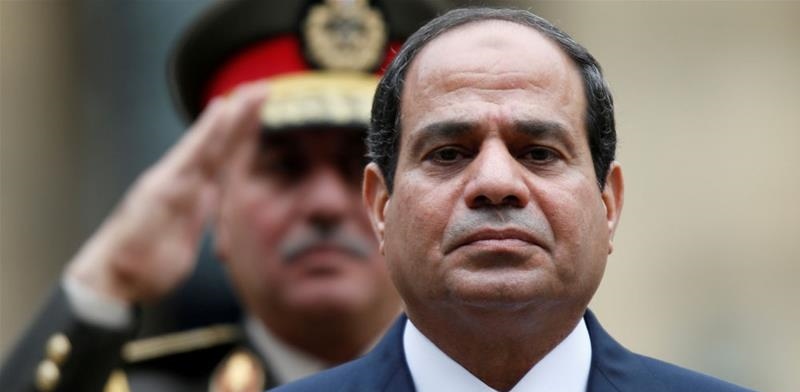Egypt’s Immunity Bill
July 18, 2018 | Expert Insights

Egypt has passed a new bill that will grant top military personnel immunity from prosecution over the 2013 crackdown, a period considered one of the deadliest in Egypt’s recent history.
Background
Egypt is a Mediterranean country straddling Africa and Asia. It is bordered by Israel, the Gaza Strip, Sudan and Libya. It is considered the cradle of civilization, having witnessed some of the earliest developments in writing, agriculture, urbanization and organized religion. Egypt's long and rich cultural heritage is an integral part of its national identity, which has endured and assimilated various foreign influences including Greek, Persian, Roman, Arab, Ottoman, and Nubian.
Egyptian political history has been marked by long periods of instability. Hosni Mubarak’s tenure from 1981 to 2011 was critiqued for crippling Egypt’s civilian institutions, making space for increased military control. His rule saw an increase in terrorist attacks as Egypt was targeted by militant Islamist groups such as Al-Gamaá al-Islamiyya. Constitutional changes to further centralize authority were prevalent and the military had enormous power.
The Egyptian Revolution beginning in January 2011 was a part of the wider Arab Spring protests for democracy. The uprising resulted in the overthrow of the government and Mubarak’s arrest. Since then, there have been many changes. Mohamed Morsi, elected in 2012 and backed by the Muslim Brotherhood faced public discontent and was ousted by the military.
After an interim government, the head of the Egyptian Armed Forces, Abdel Fattah el-Sisi was elected in the 2014 presidential elections and has remained in power since. He has been vocal in his mission against insurgency in the country, and the Muslim Brotherhood. He has also been criticized for human rights violations during his rule, including violence against civilians, and suppressing political opposition.
Analysis
The Egyptian Parliament has passed a law that might protect senior military officers from prosecution in the future, over the violence that followed the removal of former President Morsi from office. According to the law, known as the "Law Governing the Treatment of Certain Senior Commanders of the Armed Forces", the current President Sisi has the right to name officers for eligibility for immunity from investigation into alleged offences committed between July 2013 and June 2014. The officers, thus named, will also be accorded lifelong reserve status and diplomatic privileges while travelling abroad.
The law was submitted to the Parliament in June 2018, and states that any investigations against the officers will require clearance from the Supreme Council of the Armed Forces. During this period, more than 1,000 protesters were killed when security forces attacked mainly supporters of Morsi in Cairo’s Rabaa and Nahda Squares. Between 16,000 and 41,000 people, including secular activists, were arrested or detained, and hundreds were handed death sentences after mass trials. Egyptian authorities have justified the actions of the security forces by stating that protestors were allowed the opportunity to leave peacefully. It was the armed element within the Egyptian Brotherhood that had actually incited violence.
Security forces also reportedly killed 60 protesters gathered outside the Republican Guard headquarters in Cairo on 8 July that year; 95 protesters at the Manassa Memorial on 27 July; and 120 protesters at Ramses Square on 16 August. An Egyptian government committee had even looked into the killings and did not recommend charges against any government official or member of the security forces.
The passage of the bill comes a day after parliament also backed a draft bill that grants foreigners citizenship if they deposit the sum of at least seven million Egyptian pounds, or about $391,000, in a local bank, save it there for five years and reside in the country during that period.
Generally, such a bill passes slowly over a period of months through the legislative process. However, it was passed by a show of hands in parliament with an overwhelming majority of attending lawmakers raising their hands in support, with eight MPs voting against it. The draft bill still faces another parliament session and final approval by the president before it can become a law.
Counterpoint
Several human rights activists and groups believe that the widespread and systematic nature of the killings were part of a policy of using lethal force against largely unarmed protesters. Egyptian authorities are increasingly using counterterrorism and state-of-emergency laws to unjustly prosecute journalists, activists, and critics for their peaceful criticism.
Assessment
Our assessment is that the newly passed bill will be used by military personnel to protect themselves from any potential for accountability in the future. We believe that the move is a major setback for human rights in Egypt. We feel that Egyptian authorities need to establish an impartial committee to address the deteriorating situation and provide redress for the victims.








Comments